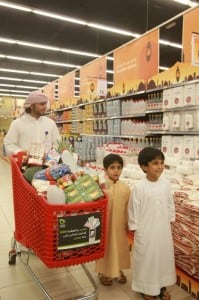 This week marked the beginning of the holy month of Ramadan when Muslims abstain from food and water during the day and focus on the spiritual matters. While fasting is only for healthy adults who don’t take medications, in fact many parents in Dubai encourage their children to take part in the tradition. But how safe is it?
This week marked the beginning of the holy month of Ramadan when Muslims abstain from food and water during the day and focus on the spiritual matters. While fasting is only for healthy adults who don’t take medications, in fact many parents in Dubai encourage their children to take part in the tradition. But how safe is it?
During the 30 days of Ramadan all Muslims, except for pregnant and nursing mothers, children before puberty and sick people, don’t eat food and drink liquids every day, from sunrise to sunset. Fasting this year is a bit of a challenge for everyone, as Ramadan falls in the hottest time. Abstaining from water during the day, considering the average temperatures are above 40 degree Celsius, can lead to dehydration, losing consciousness and various heat-related conditions. It can be particularly dangerous for people who work outdoors such as construction workers. Thirst is the most challenging part, especially for children who are taking part in the fast for the first time. For children, the 30-day fast can be detrimental – they have increased needs of nutrition because they are growing up.
So, why parents want their kids to fast? In fact, according to doctors, the Ramadan fast is not an easy thing to do. That’s why it’s a good idea to slowly introduce children to the ritual at a younger age. Some parents would serve breakfast and then let kids fast till noon, or another strategy is giving them little snacks throughout the day. Anyway, for many people this is a very effective method to teach children self-control and show them what the practice feels like. Of course, for many kids waking up early in the morning for suhoor is an interesting and festive event and they enjoy doing it. The decision should be made by the parent, so if you think your kids are old and strong enough to fast this year, there are several things you should take into consideration to ensure a safe Ramadan for everyone.
First of all, make sure your kid is healthy. Then, prepare nice and rich suhoor meals every day, so you know he or she is eating enough to sustain them throughout the day. The meals should be balanced and comprising complex carbohydrates, protein and vegetables. Foods rich in fibers will be great – beans, fruits and vegetables, whole grain cereals. Don’t think that a huge plate of spaghetti will be great breakfast. Make sure the kids are drinking a lot of water – not milk, tea or fruit juice, the perfect option is water. This is the only way they remain hydrated. They should reduce physical activities, games which include running, jumping, and of course outdoor activities.
If you notice tiredness or any first signs of dehydration – dry mouth, headache, dizziness, as well as low blood sugar, fatigue, behavioral changes and irritability, stop the fasting immediately. Of course, when fasting kids are more susceptible to infections and diseases, so if there is even slightly raised body temperature, and symptoms of flu or cold, the child should start eating regularly again. After all, the fasting during Ramadan is not meant to be detrimental to your health.












